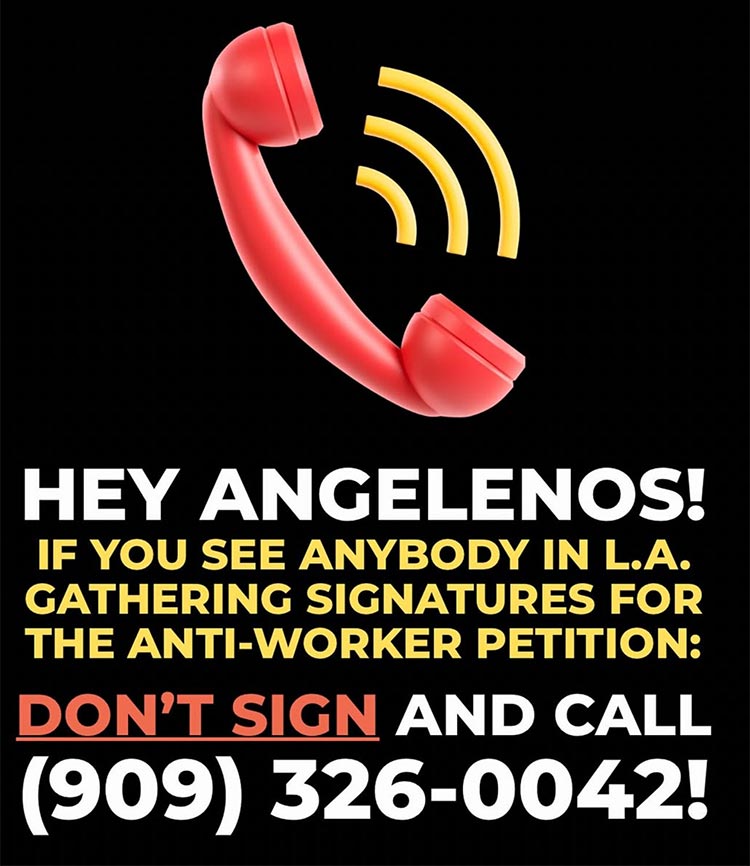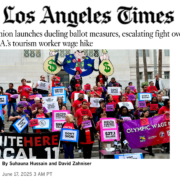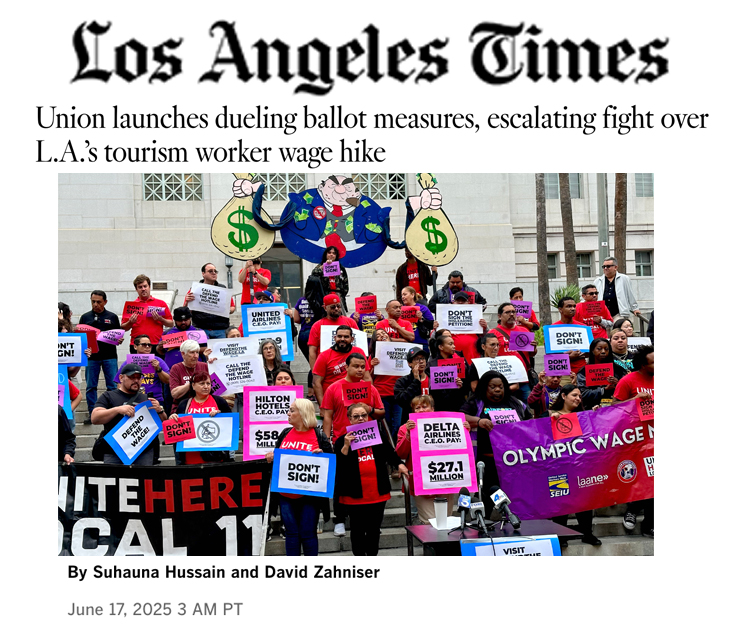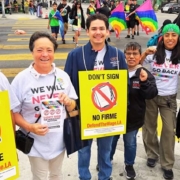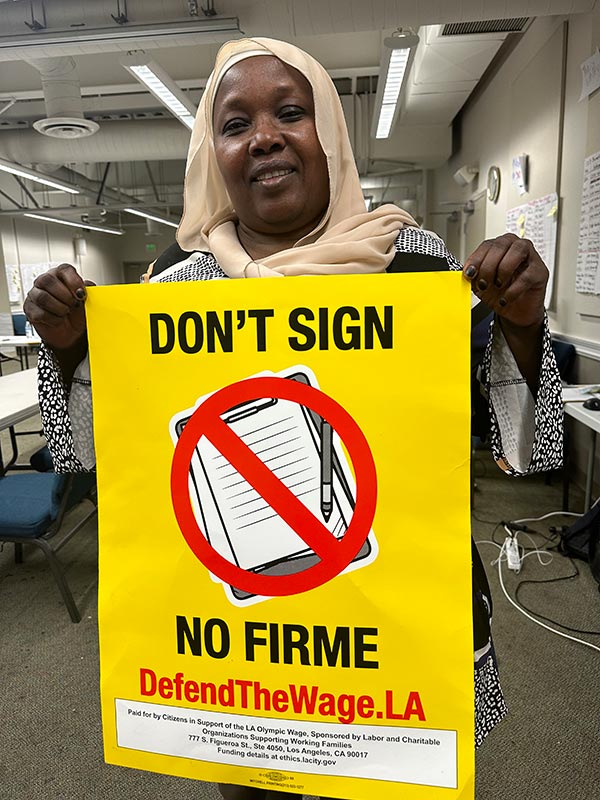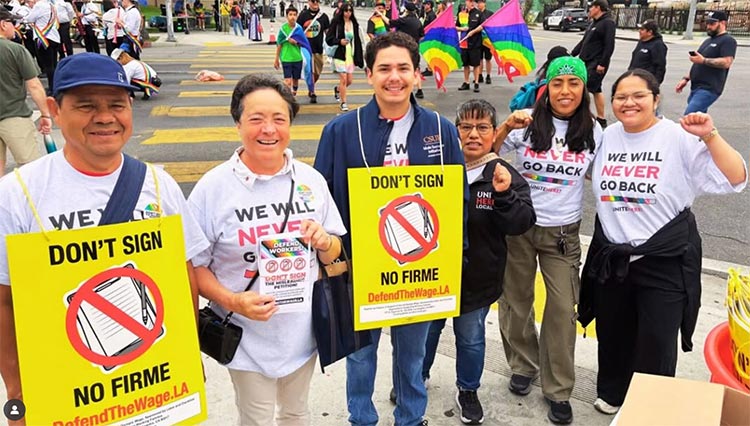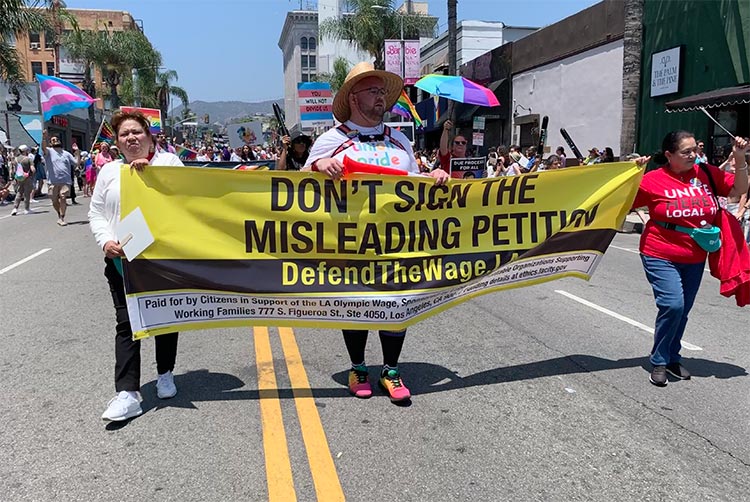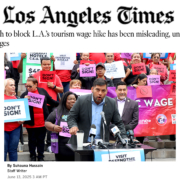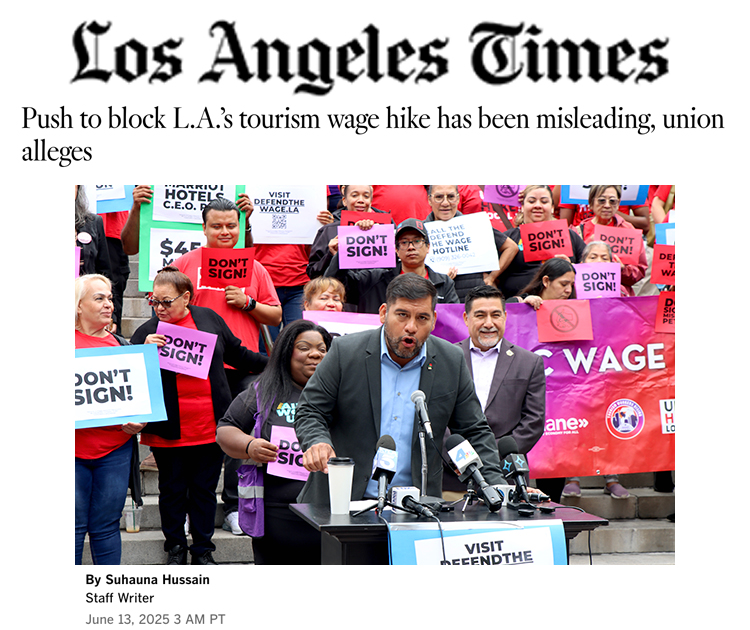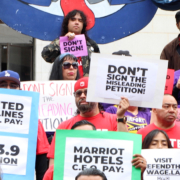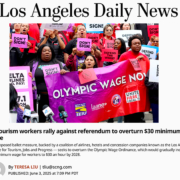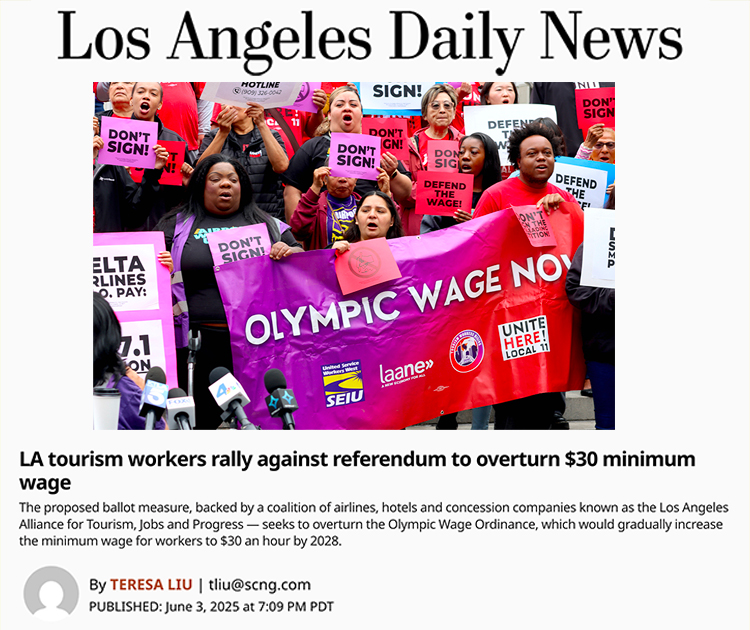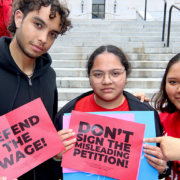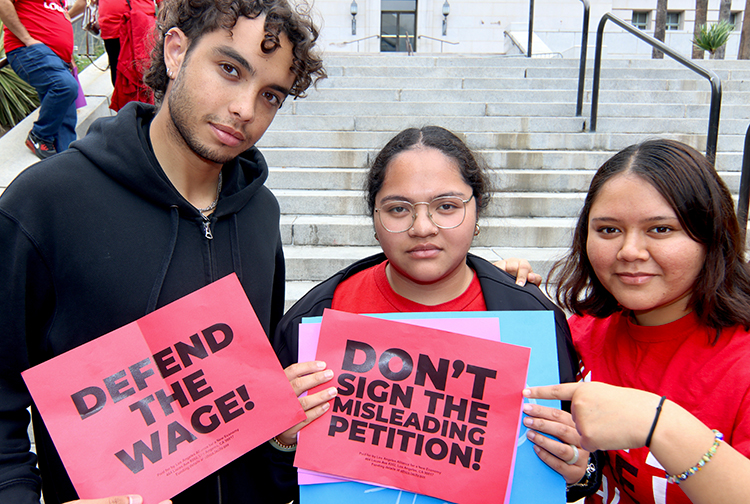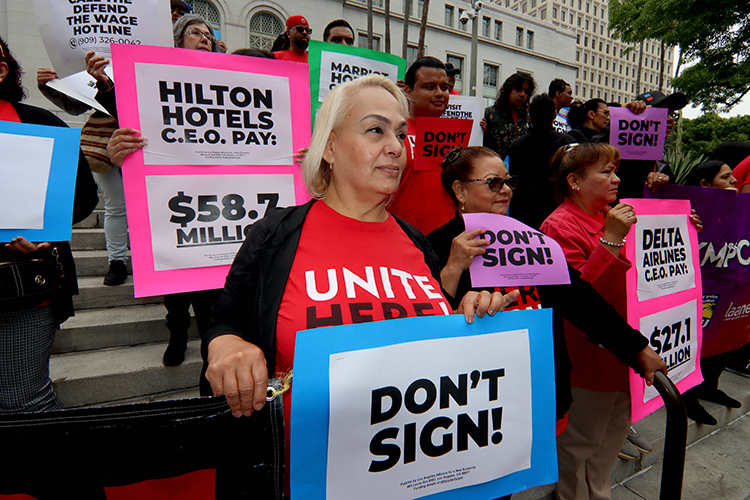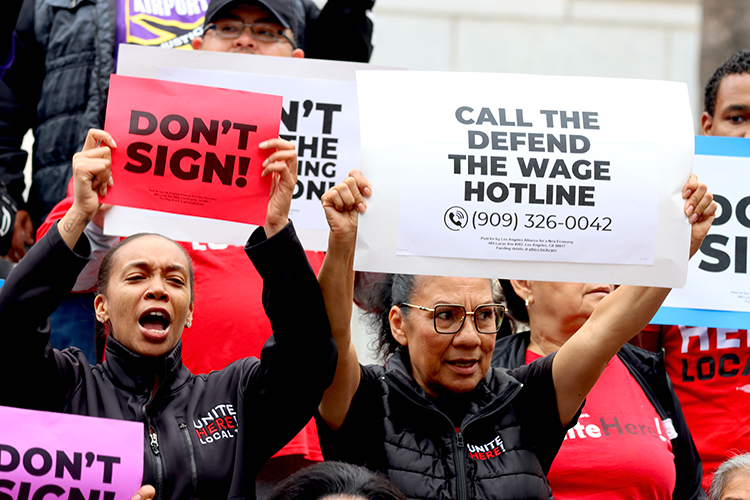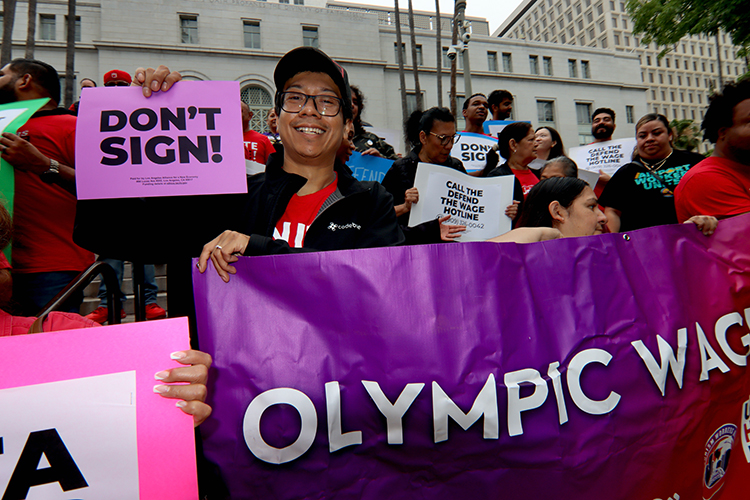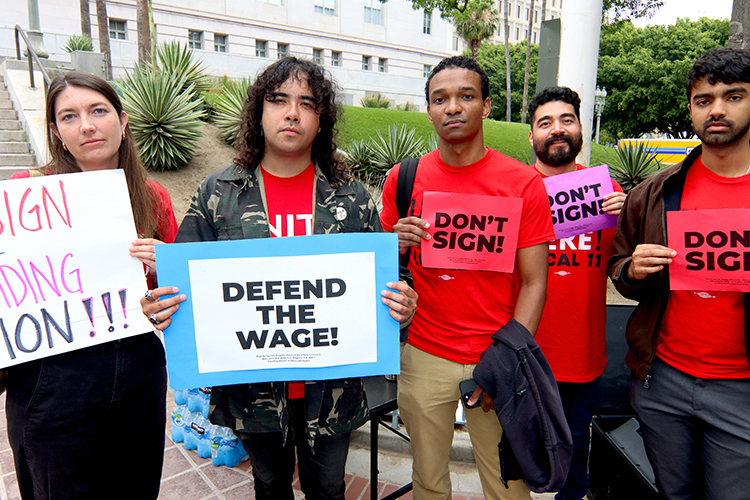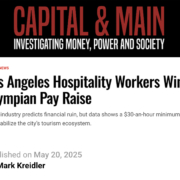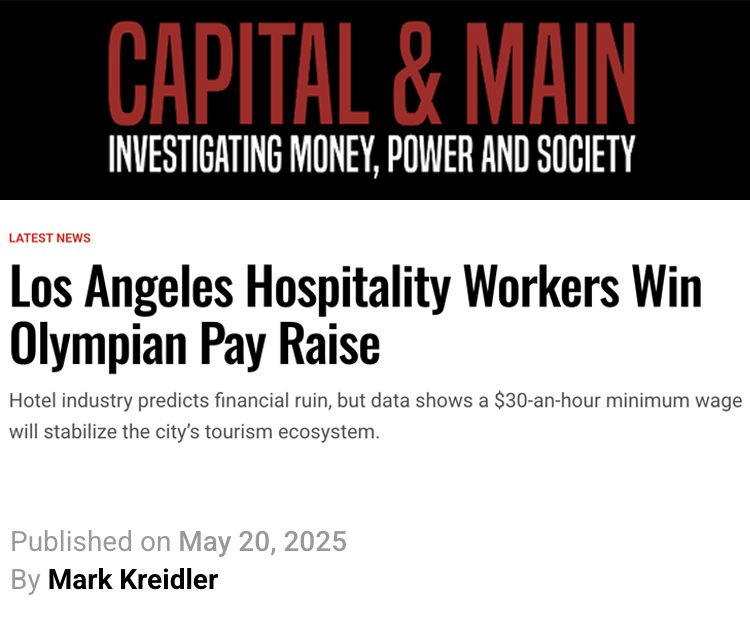BREAKING NEWS: Defend the Wage LA Coalition Demands City Clerk Invalidate Referendum Petition to Overturn the Olympic Wage
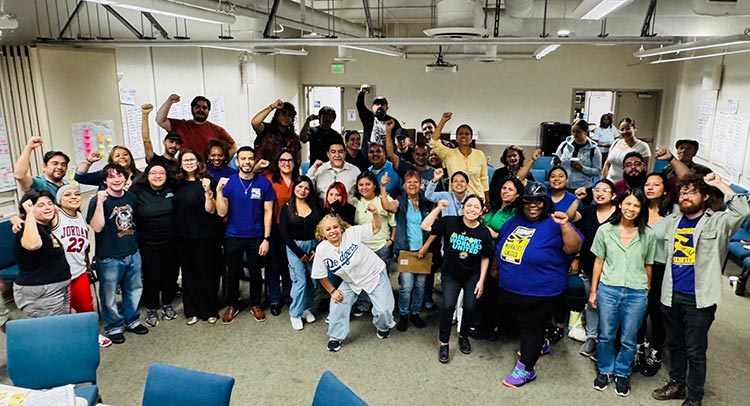
LOS ANGELES: The Defend the Wage LA Coalition, which includes UNITE HERE Local 11, SEIU-United Service Workers West (USWW), and LAANE, is calling on the City Clerk to throw out the referendum to overturn the Olympic Wage based on allegations of the campaign’s brazen deception of voters, violence, and other gross misconduct.
The referendum campaign, funded by Delta, United, and members of the American Hotel and Lodging Association including Hyatt, Hilton and Marriott, misled countless voters by claiming the petition would increase wages, when it would actually overturn a recently-enacted minimum wage increase. Many volunteers have also accused signature gatherers of violence against canvassers seeking to keep the Olympic Wage intact. The referendum signature gatherers even set up shop in Skid Row, allegedly paying cash to unhoused people to register to vote and sign the referendum petition. Delta is an inaugural founding partner of the 2028 Olympics and Paralympics and official airline of Team USA.
A record of more than 115,000 Angelenos have submitted forms to revoke their signatures on the referendum petition when they learned the petition would actually upend the Olympic Wage. Given the evidence of gross misconduct and revocations, the coalition is calling upon the City Clerk to invalidate the petition altogether.
The Defend the Wage LA Coalition has mounted a major public campaign to educate the public about the referendum, report misconduct by its circulators, and assist voters who signed the petition based on false representations about its purpose to revoke their signatures. Hundreds of Angelenos have joined in the effort, calling a 24-hour hotline and responding to thousands of emails and text messages, with tens of thousands signing revocation forms.
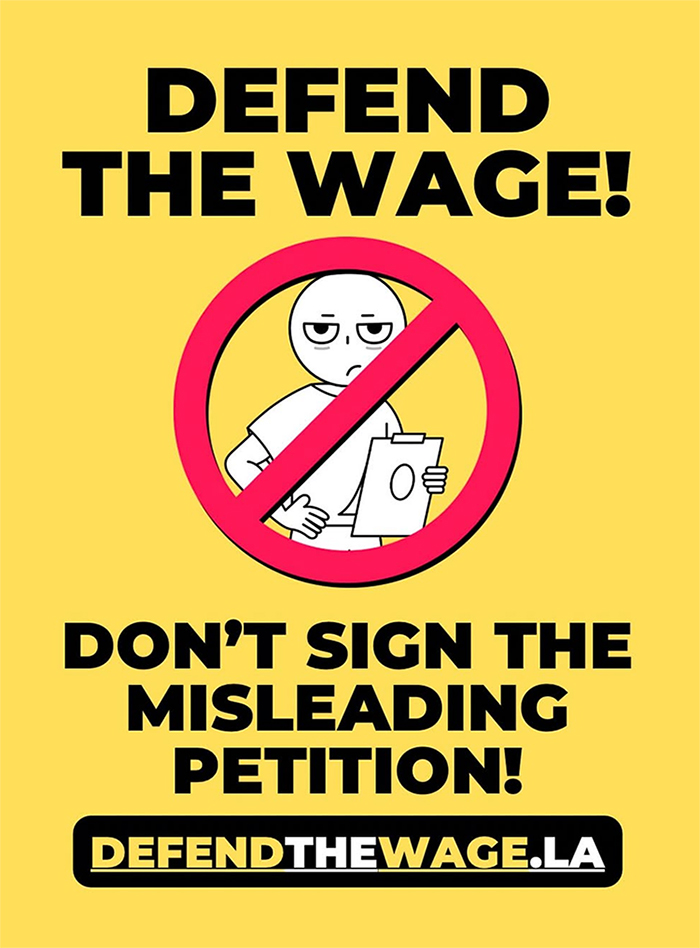
“The greed of the airlines and hotels was only outdone by their deceit and desperation. The City Clerk should invalidate the petition,” said Kurt Petersen co-president of UNITE HERE Local 11 and David Huerta president of SEIU-USWW. “They would rather spend millions of dollars deceiving voters than pay workers a living wage and quality healthcare, but we are proving once again that working class solidarity is more powerful than money.”
“When we spoke to our community, they understood us and saw through what the industry was trying to do. Housing affordability is out of reach for so many working families across the region, and their support means the world,” said Maria Rubio, worker at Flying Food Group, an airline catering company that prepares and packages meals for international flights out of LAX.
“Corporations’ attempts to deceive Angelenos into signing the CEOs petition didn’t work because we mobilized, organized, and educated our communities on what was at stake: living wages and healthcare for essential workers. In the end, no matter how many underhanded tactics corporations try to use, we, the essential workers that make LAX and the region’s economy run, will win,” said Jovan Houston, LAX customer service agent and SEIU-USWW executive board member.
“Our coalition, which fought alongside tourism workers for over two years at City Hall, has only grown since we heard that corporations were trying to claw back workers’ hard-won wages and health care,” said Jessica Durrum, Policy Director at LAANE. “It’s been remarkable and inspiring to see so many Angelenos heed the call by volunteering, making calls, and helping to spread the word, all to defend their neighbors’ access to health care and decent wages. We’re hopeful that the City Clerk will do the right thing and invalidate the petition.”
The outrageous activity of signature gatherers has engendered a flurry of complaints. Most recently, this Thursday, UNITE HERE Local 11 submitted extensive evidence to the offices of the City Clerk and the City Attorney to support allegations that circulators for the referendum egregiously misrepresented the content and effect of the referendum petition to voters, committed violence or threats of violence against canvassers seeking to educate the public about its actual content, and committed other serious misconduct. This mountain of evidence demonstrates why the petition should be rejected.
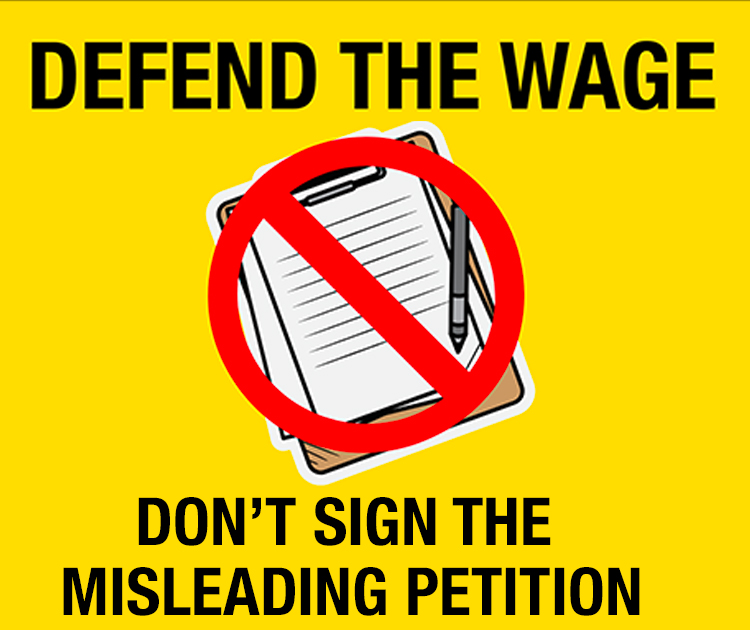
Earlier this week, UNITE HERE Local 11 submitted a complaint to California Labor Commissioner Lilia Garcia-Brower alleging that the companies collecting signatures for the referendum may have engaged in labor trafficking in violation of California law by inducing some signature gatherers to come to work in Los Angeles from other states by falsely claiming the petition was to increase the minimum wage.
Earlier in June, Local 11 filed a complaint with City Attorney Feldstein Soto and other agencies alleging that paid signature gatherers for the petition have obtained signatures by falsely claiming that the petition would increase workers’ wages. It also alleged that referendum signature-gatherers have repeatedly engaged in violent or threatening behavior. In one case, a witness alleges that he was violently assaulted and punched in the face by a referendum petition circulator.
As a result, Los Angeles City Councilmember Hugo Soto Martinez introduced a motion to call on the Los Angeles Police Department and the City Attorney to investigate the claims, which was subsequently passed by the Economic Development and Jobs Committee.
In addition, over thirty elected officials, including State Senate Majority Leader Lena Gonzalez, Senators Maria Elena Durazo and Lola Smallwood Cuevas, Assembly Majority Whip Mark Gonzalez, and Assemblymembers Isaac G. Bryan, Tina McKinnor, Mike Gipson and Avelino Valencia sent a letter and demanded that the companies “stop funding this distortion of the democratic process in Los Angeles.”
# # #
The Defend The Wage LA coalition is composed of UNITE HERE Local 11, SEIU-USWW, and Los Angeles Alliance for a New Economy (LAANE).
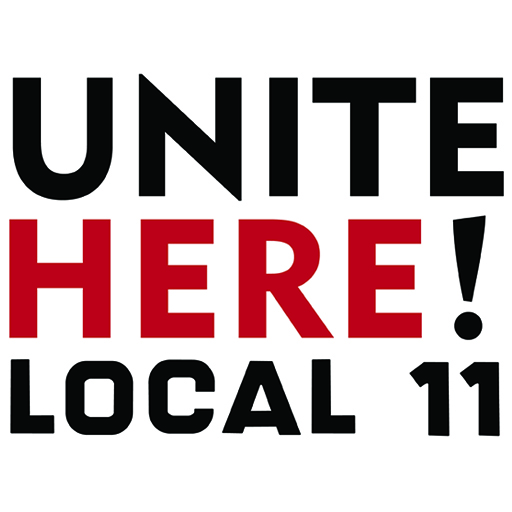


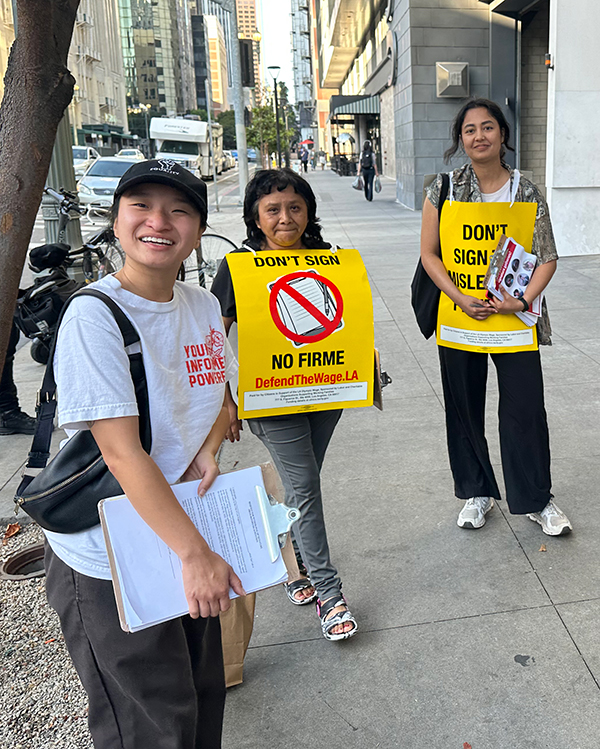
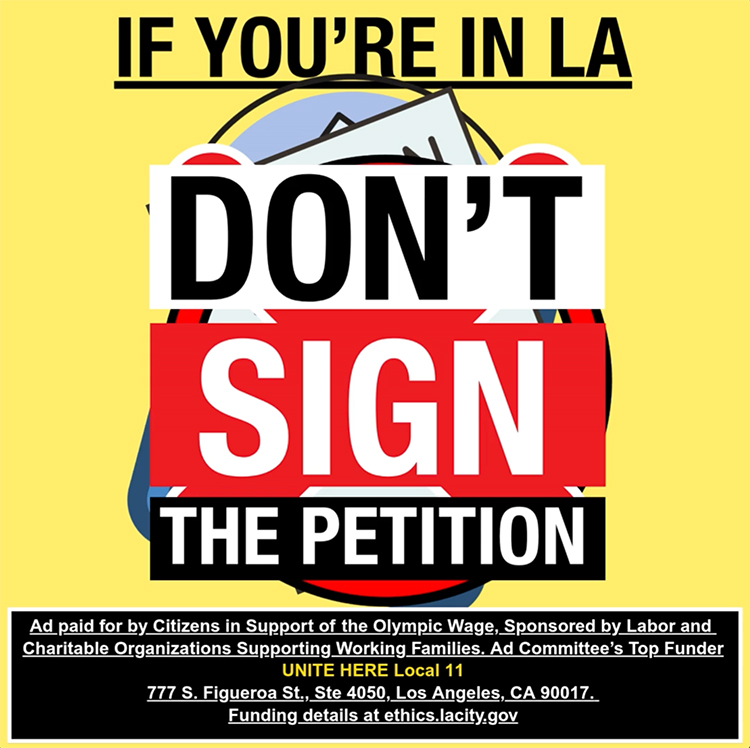
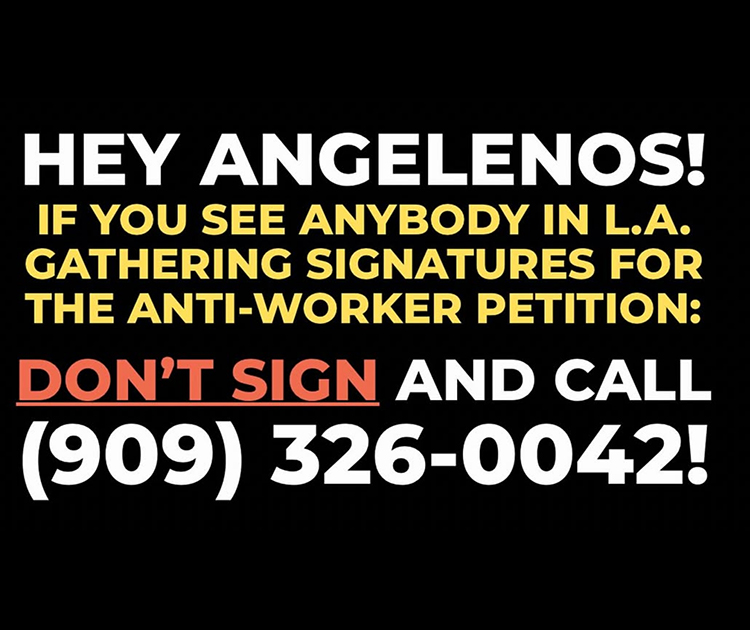 On May 14, following more than two years of deliberations, the Los Angeles City Council enacted, by a 12-3 margin, an ordinance to increase the wages and health benefits provided to hotel and airport workers in the City of Los Angeles. The “L.A. Alliance for Tourism, Jobs and Progress” launched an effort to overturn the minimum wage increase through a referendum. This Alliance has until June 30 to gather at least 92,998 valid signatures from registered voters in Los Angeles to qualify the measure for the June 2026 ballot.
On May 14, following more than two years of deliberations, the Los Angeles City Council enacted, by a 12-3 margin, an ordinance to increase the wages and health benefits provided to hotel and airport workers in the City of Los Angeles. The “L.A. Alliance for Tourism, Jobs and Progress” launched an effort to overturn the minimum wage increase through a referendum. This Alliance has until June 30 to gather at least 92,998 valid signatures from registered voters in Los Angeles to qualify the measure for the June 2026 ballot.
